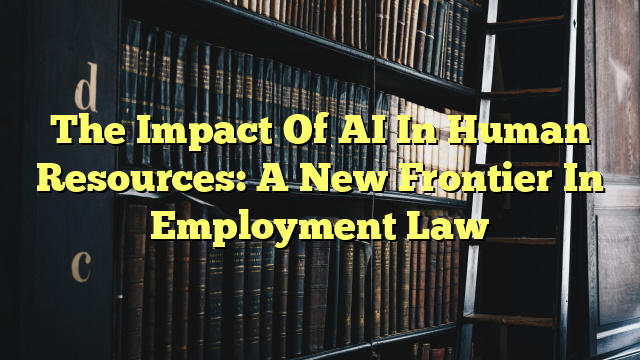Table of Contents
Introduction
Artificial intelligence (AI) is rapidly transforming various industries, and human resources (HR) is no exception. The integration of AI in HR processes has the potential to streamline operations, improve efficiency, and enhance decision-making. However, it also raises important legal and ethical considerations. This article explores the impact of AI in human resources and its implications for employment law.
The Impact of AI on Human Employment
AI has the potential to significantly impact human employment. While AI can automate repetitive tasks and increase productivity, it also has the potential to replace certain job roles. Jobs that involve routine and predictable tasks are particularly vulnerable to automation. This can lead to job displacement and require workers to acquire new skills to remain employable in the changing job market.
How AI Will Affect Future Employment
The future of employment will be shaped by AI. As AI continues to advance, it is expected to create new job opportunities that require specialized skills in AI development, data analysis, and machine learning. However, it may also eliminate certain job roles that can be automated. The workforce of the future will need to adapt and acquire new skills to thrive in an AI-driven economy.
The Effect of AI on the Workforce and Labor
The integration of AI in the workforce can lead to significant changes in labor dynamics. AI can enhance productivity and efficiency, but it can also lead to job displacement and income inequality. It is crucial for policymakers and organizations to address these challenges and ensure that the benefits of AI are distributed equitably. Additionally, AI can introduce biases and discrimination in decision-making if not properly regulated.
The Role of AI in Human Resources
AI is revolutionizing the field of human resources. It can automate administrative tasks, such as resume screening and scheduling interviews, allowing HR professionals to focus on strategic initiatives. AI-powered tools can also analyze large volumes of data to identify patterns and make data-driven decisions. However, the use of AI in HR raises concerns about privacy, bias, and fairness. Organizations must ensure that AI systems are transparent, accountable, and comply with legal and ethical standards.
Conclusion
The integration of AI in human resources has the potential to transform the way organizations manage their workforce. While AI can bring numerous benefits, it also poses challenges in terms of employment law, labor dynamics, and ethical considerations. It is crucial for policymakers, organizations, and HR professionals to navigate this new frontier responsibly and ensure that AI is used in a way that promotes fairness, equality, and human dignity in the workplace.

